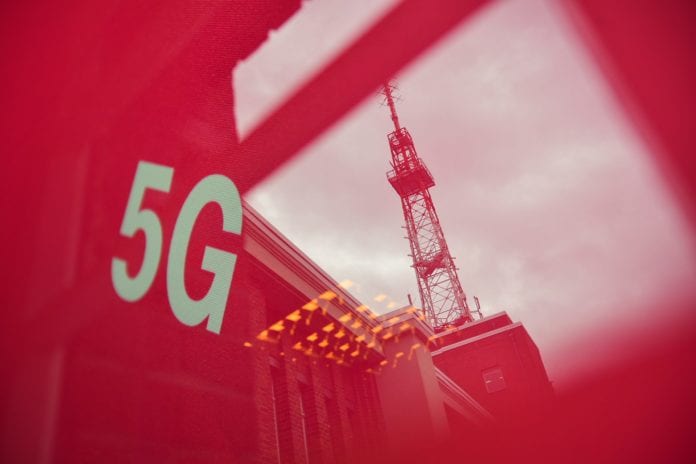The carrier is currently carrying out 5G trials in Austria, Germany, Greece, Hungary, Poland and the Netherland
BARCELONA — German carrier Deutsche Telekom has 150 5G antennas already operational across the telco’s footprint in Europe, Claudia Nemat, board member for technology and innovation at Deutsche Telekom, told reporters during a presentation at Mobile World Congress 2019.
Nemat said that these 5G antennas are located in Austria, Germany, Greece, Hungary, Poland and the Netherlands — the countries where the telco is currently carrying out its 5G trials.
Deutsche Telekom’s 5G antennas, which are based on the 5G New Radio standard, will transmit data over 5G technology during the first quarter of the year.
“I believe there is no way for Europe to fall behind in 5G and that is what we are striving for,” Nemat said. “We are investing heavily in the network. We need to have 5G in Europe.”
Vodafone Group CEO Tim Hoettges had previously said that the commercial launch of 5G technology will take place in 2020, as long as enough commercial devices are available.
In May 2018, Deutsche Telekom had announced the deployment of the first 5G antennas to test the technology in downtown Berlin. The antennas, which are based on 5G NR, allowed the carrier to demonstrate what it claimed to be Europe’s first 5G data connection over a live network. At that time, the telco also said that it was in process to deploy a 5G cluster in Berlin.
The first six commercial antennas were installed in sites in Berlin’s Mitte and Schöneberg districts for test operations. Deutsche Telekom’s 5G sites in Germany are using frequencies in the 3.7 GHz spectrum band under a testing license provided by German regulators. The operator has also said that its 5G equipment is interacting with Deutsche Telekom’s 4G spectrum in Germany.
The German government is in the process of awarding spectrum for the provision of 5G services in the local market.
In January, the country’s telecom services regulator BNetzA said it had received applications from four companies to take part in its 5G auction, which is scheduled to take place in the second half of the year. Although the regulator did not reveal the identity of the interested companies, local press reports suggested that Telefonica Deutschland, Deutsche Telekom and Vodafone, as well as newcomer 1&1 Drillisch will take part in the process.
In November, the telecom regulator published the final draft conditions for the country’s 5G auction. Bundesnetzagentur President Jochen Homann said the proposal had been revised from the original terms, taking into account numerous comments from interested parties.
Among the final draft conditions are a required minimum data rate of 100 Mbps available by the end of 2022 in 98% of households in each state, all federal highways, all main roads and along the major railway routes. Also, each existing carrier must also install 1,000 5G base stations and 500 other base stations in defined areas by the end of 2022. At the end of 2024, 5G coverage should be extended to seaports, main waterways and all other road and rail routes in the country.
The regulator’s documentation also includes the expectation that operators would work together on providing coverage in areas not economically viable for each to install their own equipment.
All German carriers have filed legal claims against the terms of the 5G auction.

